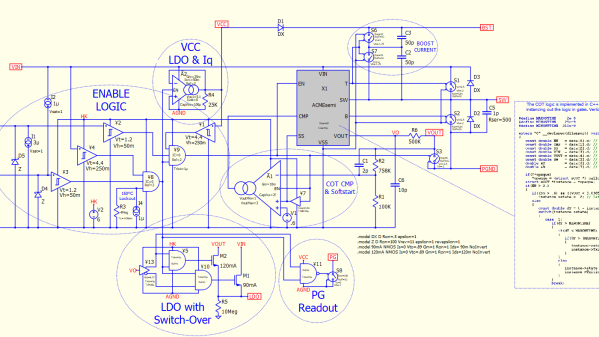[Mike Engelhardt] is a name that should be very familiar to the hardcore electronics nerd. [Mike] is the developer responsible for LTSpice, which is quite likely the most widely used spice-compatible simulator in the free software domain. When you move away from digital electronics and the comfort of software with its helpful IDEs and toolchains, and dip a wary toe into the murky grey waters of analog or power electronics, LTSpice is your best friend. And, like all best friends, it’s a bit quirky, but it always has your back. Sadly, LTSpice development seems to have stalled some years ago, but luckily for us [Mike] has been busy on the successor, QSpice, under the watchful eye of Qorvo.
It does look in its early stages, but from a useability point of view, it’s much improved over LTSpice. Performance is excellent (based on this scribe’s limited testing while mobile.) Gone (thankfully!) is the uncommon verb-noun usage paradigm — replaced with a more usual cut-n-paste flow. Visually it still kind of looks like LTspice in places, but nicer with a clear and uncluttered design that gets straight to the point. Internally, the simulation engine has improved in speed and accuracy, as well as adding native support for modern semiconductor types, such as wide bandgap materials like SiC. Noted is that this updated software has a particular emphasis on power integrity and noise analysis, which are sticky problems that have a big impact on modern high-power systems.











